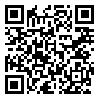
Middle Eastern Journal of Disability Studies
Middle Eastern Journal of Disability Studies

Volume 11 - Articles-1400
MEJDS (2021) 11: 165 |
Back to browse issues page
Download citation:
BibTeX | RIS | EndNote | Medlars | ProCite | Reference Manager | RefWorks
Send citation to:



BibTeX | RIS | EndNote | Medlars | ProCite | Reference Manager | RefWorks
Send citation to:
Afshariyanzadeh A, Bayat F, Esfahani Asl M. The Effects of Compassion-Focused Therapy on Depression and Anxiety in Dezful County Teachers. MEJDS 2021; 11 :165-165
URL: http://jdisabilstud.org/article-1-1300-en.html
URL: http://jdisabilstud.org/article-1-1300-en.html
1- Islamic Azad University, Andimeshk
Abstract: (4560 Views)
Background & Objectives: In an education system, the teachers' mental health is of importance. A teacher with problems like depression or anxiety may transmit such feelings to students and harm them. A student who cannot understand the teacher falls behind studies and may discontinue studying. If a teacher has the authority to reduce his anxiety and depression and affect students' learning process, one can expect more academic achievement. Several studies have supported the relationship between high levels of self-compassion and low levels of depression and anxiety, even with self-criticism. Several studies have generally been conducted on compassion psychology, particularly on Compassion-Focused Therapy (CFT). Thus, this study aimed to determine the effects of CFT on depression and anxiety in teachers.
Methods: This was a quasi-experimental study with a pretest-posttest and a control group design. The research sample consisted of 30 elementary school teachers in Dezful City, Iran, in 2018. They were selected by the convenience sampling method and randomly divided into the experimental and control (n=15/group) groups. The experimental group underwent eight 120-min CFT sessions (Germer & Neff, 2013). After completing the sessions, the posttest was conducted. The inclusion criteria of the research included the age over 20 years, a teacher in Dezful and suburban areas, and no mental health disorders. The exclusion criteria included irregular attendance in training classes, failure to perform homework, providing incomplete questionnaires and information. The methodology used in this study was to provide readiness for attending this course per the calls made in various schools in the city. After the volunteers were identified, they were all pretested. The tools used in this study were Beck Depression Inventory-II (Beck et al., 1996) to measure depression and Beck Anxiety Inventory (Beck & Steer, 1990) to measure anxiety levels. Furthermore, data analysis was conducted using descriptive statistics (including mean & standard deviation) and inferential statistics, including univariate and multivariate analysis of covariance in SPSS at the significance level of 0.05.
Results: The obtained results indicated that with pretest control, there was a significant difference between the experimental and control groups in the posttest concerning depression (p˂0.001) and anxiety (p˂0.001). Eta-squared values also revealed that 0.783 of the changes in depression and 0.801 of the changes in anxiety could be explained by the independent variable (CFT).
Conclusion: According to the present study results, therapists working with teachers with depression and anxiety are recommended to use CFT to reduce depression and anxiety.
Conclusion: According to the present study results, therapists working with teachers with depression and anxiety are recommended to use CFT to reduce depression and anxiety.
Type of Study: Original Research Article |
Subject:
Psychology
Send email to the article author
| Rights and permissions | |
 |
This work is licensed under a Creative Commons Attribution-NonCommercial 4.0 International License. |




